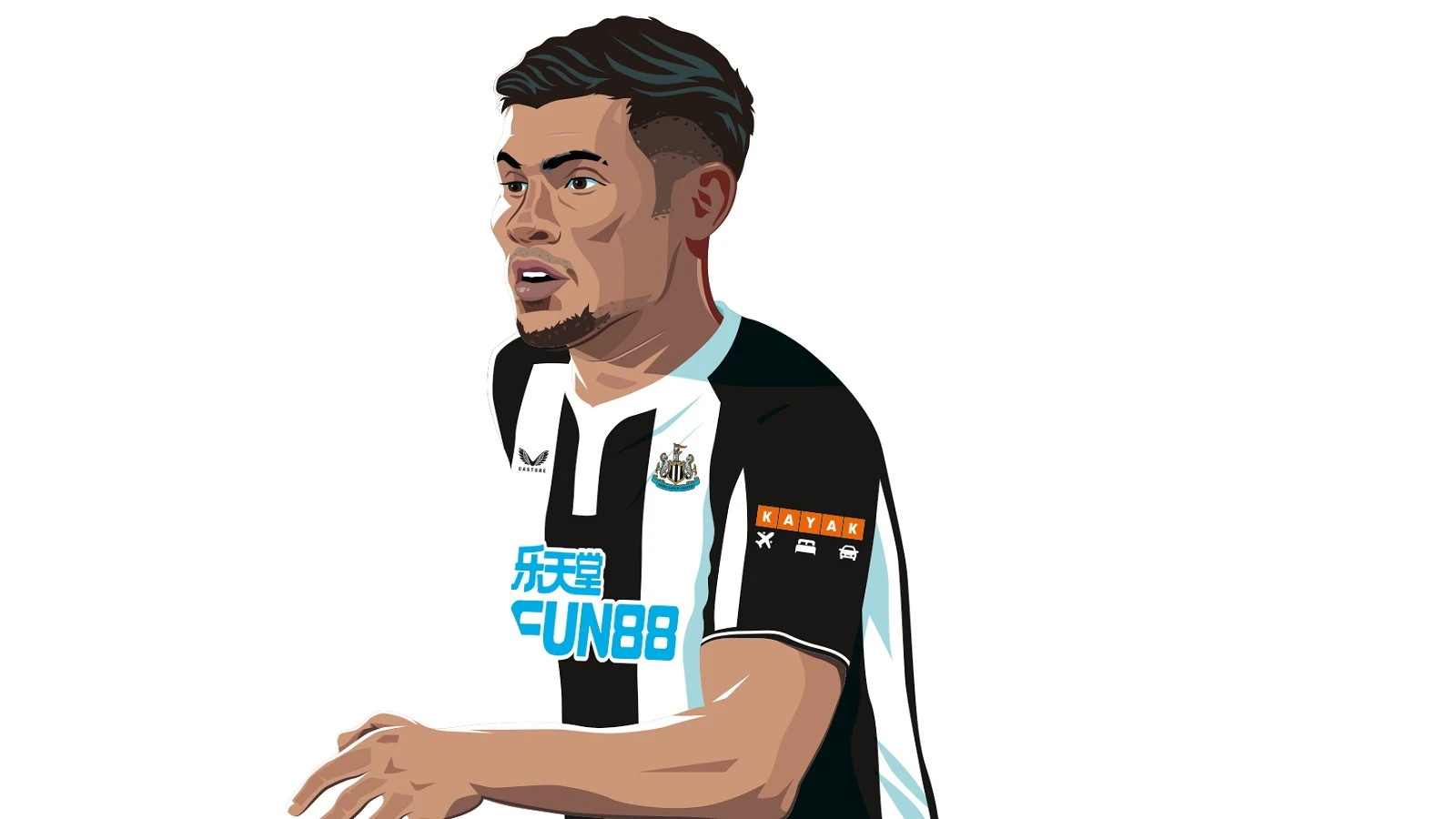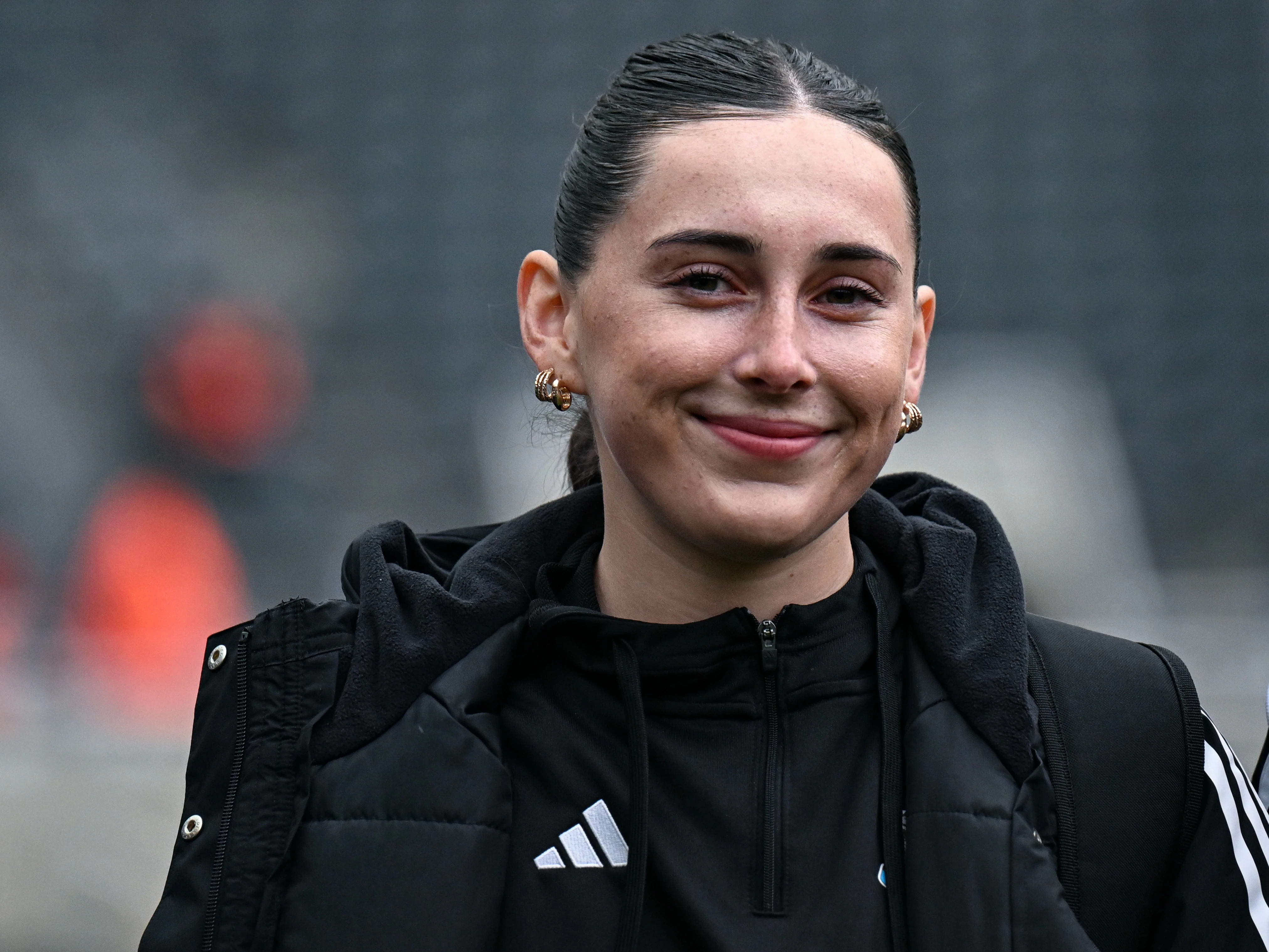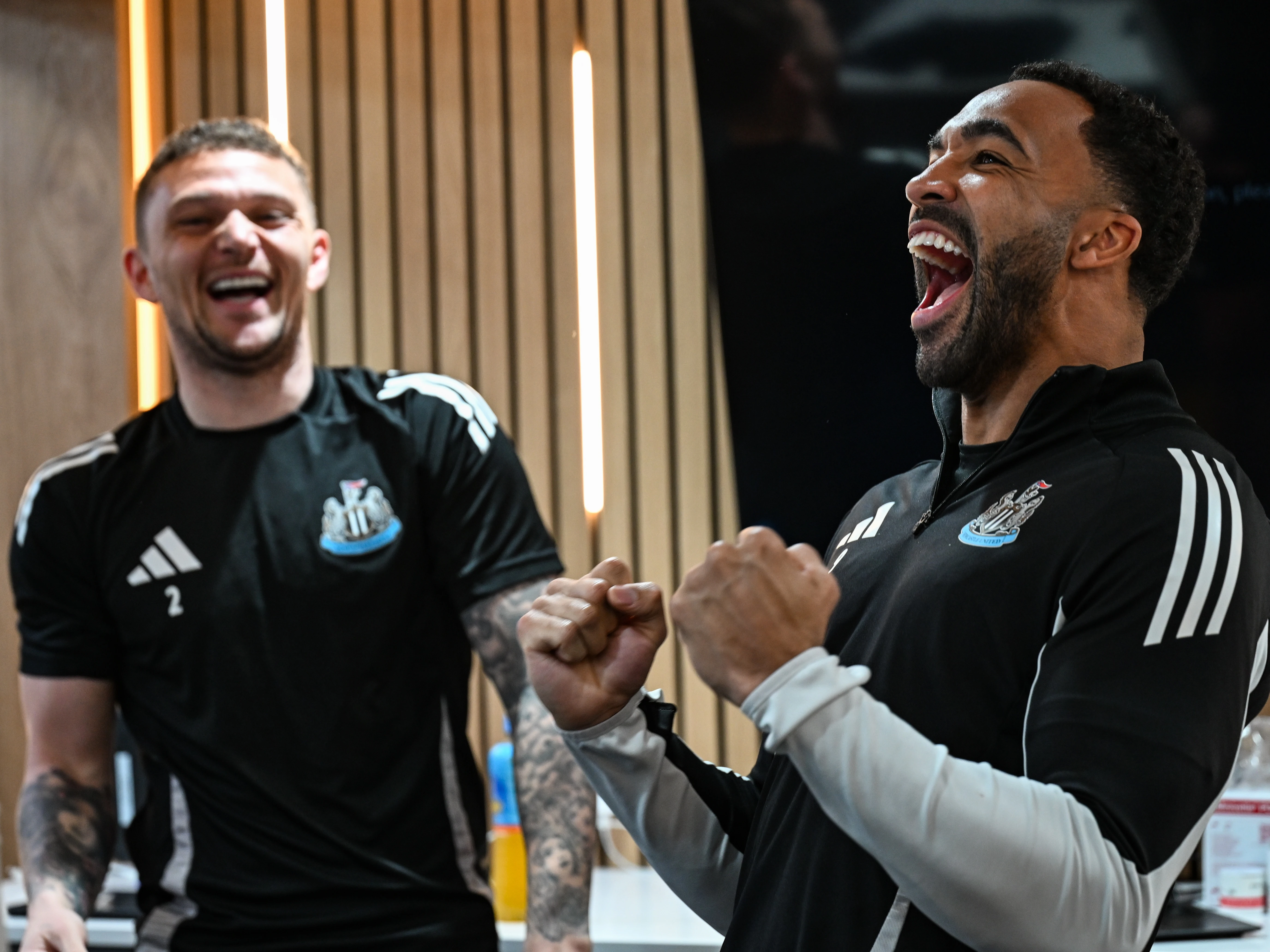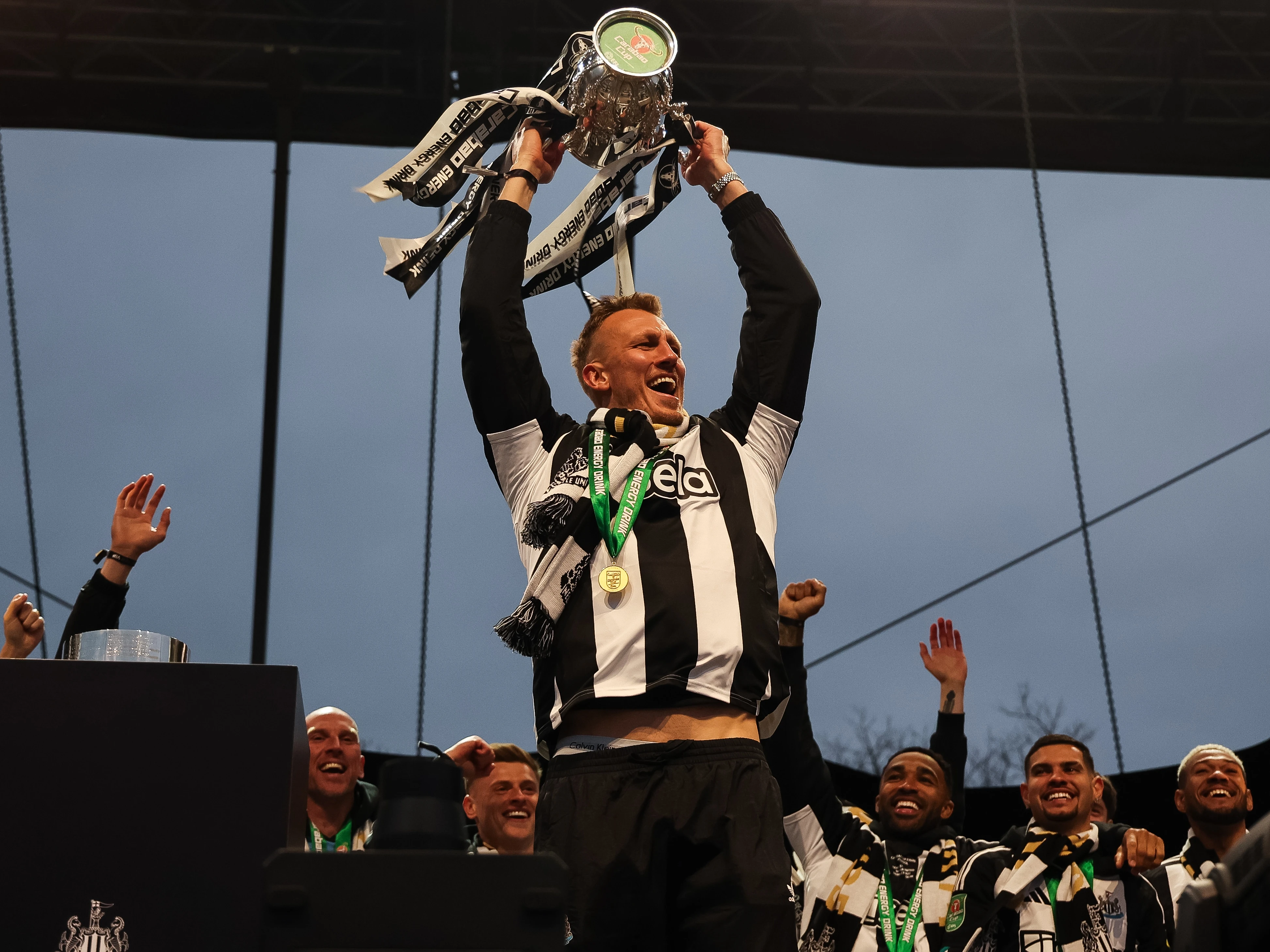"I had a great childhood. I really made the most of my opportunities. There weren't a lot of difficulties at all," says the Brazilian. "I actually started practising sport because of a sickness. When I was about three years old I suffered from pneumonia, and the doctor recommended to my parents to get me training sport. The first thing my mum did, she sent me to swimming school, so for about a year and a half I was going to swimming rather than football."
Did you enjoy that? The 24-year-old chuckles loudly and answers in English – "never!" – before reverting to Portuguese. "I told her after about a year that I didn't like swimming that much and I'd rather play football. She got in contact with the Vasco academy – we were living in São Cristóvão at the time – so the first time I played football was for Vasco da Gama. I actually got into sport because of the illness, because of pneumonia, but it was swimming rather than football. My mum didn't like football, as my dad would be playing football all the time, so it was illness that brought me there via swimming."
That bout was the second time young Bruno had suffered. He first contracted pneumonia when he was just one year old. The swimming served its purpose, though it is interesting that he feels his ability in what was to become his passion and profession was more nurture than nature. "It was a lot of hard work," he explains. "I really liked football, but I wasn't very good, so I had to work very hard. But because I liked it so much, it meant that I learned quickly."
He was the only child of Dick, a taxi driver whose cab number (39) adorns Bruno’s shirt, and Marcia, who worked in a motorcycle dealership. How did you find growing up without brothers or sisters? "It was really good, actually. My mum has 11 siblings, so I have loads of cousins. It was really cool. I had a lot of friends as well, I'd always be playing football. I'd always have a friend round to stay, or stay round at a friend's.
"The difficult time was when I left home at 15. I went to play for Audax and, as an only child, I really missed my parents. I went to live in another state, and I wouldn't see my mum and dad for one or two months at a time. That was difficult for me.
"It was the first time I'd been away from home. I spent all the time on the phone to my mum and dad. When my dad could take time off from his taxi, he would come and take the car to come and see me and watch me play, and help me get over the homesickness. It was a very difficult time, but it was crucial for my professional development, to get to where I am today."
From Audax in São Paulo, Bruno moved to Athletico Paranaense in Curitiba, a journey of over 400 kilometres. But his biggest move came in 2020 when he travelled to Europe to join Lyon in Ligue 1. Another Brazilian, one of the 2000s' finest technicians Juninho Pernambucano, was the French side's director of football at the time. "He was really important to me," Bruno nods. "I talked to him a lot and I still talk to him today. He provides me with a lot of advice, he's a friend I've made through football.
"He was decisive in bringing me to Lyon. He convinced me to join. If it wasn't for Juninho I would probably have gone to play elsewhere. He really helped me a lot, and when he left and moved on from Lyon, it was sad for me given how important he was. He was an amazing player too, a great free kick taker."
"An incredible player!" adds Bruno in English. He handled the change in style on a new continent with relative ease, after a period of adjustment. "It's a different culture, Brazilian and French. In France the football is very physical, you know? It was difficult, my first six months. But after, football is football – in countries, it's the same. They start quickly, but here in England it's so, what can I say, intense? More intense. That is the difference in the leagues."
Magpies supporters have been understandably excited by a current Brazil international moving to Tyneside at the peak of his career to date. Alongside the expected classiness and technical slickness there is also what Eddie Howe has referred to as a "steeliness", a trait most make out to be a requisite of success in England. The midfielder quite likes that take on his game. "You can describe me the way Eddie Howe did," he nods. "I've always really liked it. I've always had this really strong desire in wanting to be the best, in wanting to win. I can't accept losing. I hate losing. After we lose sometimes I don't want to speak to anyone, I don't speak to my partner, I just want to sit quietly and watch TV series. I'm really upset when we lose.
"But I think that was an accurate description of me. I gained that physical presence at Lyon. When I arrived there I was very skinny, so I developed that physicality at Lyon. I've got my own personal trainer and I do a lot of work at home too."
His move to Newcastle as the most eagerly anticipated of five January recruits was comparatively straightforward compared to his early days at Audax, or his transatlantic switch to Lyon. He isn't lonely; his pregnant girlfriend is here with him, as well as his dogs Mel, a Labrador, and Ragnar, a golden retriever. "Mel's been with me from back in Brazil when I was at Audax, so she's travelled from São Paulo to Curitiba to Lyon and on to Newcastle with me. Ragnar was just a puppy when I got him in France – this is his first move. I love my dogs. I love my dogs more than some people." He laughs – that high-pitched joyous giggle United fans already love to hear. "I love being with my family and dogs. And now I'm going to have a son or daughter on the way to join us."
He reverts to English. "Today, the problem is only the language. But I practice every day and in six months I will speak English fluent, I hope so." There is more laughter as Matt, the interpreter, jokingly opposes that prospect. "I've always liked learning languages," continues Bruno, back in his native tongue. "I speak Portuguese, Spanish, French and now I'm learning English. It's come quite easily to me, but I've found English the most difficult as it's quite different, but I'm having lessons every day. I think in six months' time I'll be communicating much better, but I already understand a lot."
There will likely be bumps in the road on his latest journey, and understanding the Geordie accent is one ("difficult, huh, the accent here!"), but he says he has been touched by the warmth shown to him since he joined. "I didn't really expect it – I suppose a bit, but not as much as it's been. The affection the fans have for me is incredible. I love the fans. Whenever I'm out on the street, they ask for a photo, they shout my name, and I do feel a bit embarrassed at times!
"But I hope to continue and to pay back on the pitch all the affection they have for me. I want to do my best for them. I really believe in our project, our fans and our team."
Does he understand why it means so much that a new signing would dare to speak about things like winning the league, or the Champions League, so soon after signing and and at the end of such a miserable decade? He wants to field this one in English. "The ambition is very important for a player, because if you don't have ambition, you have nothing. It's important. The most difficult (thing) here now, in my opinion, is to stay in the Premier League this season. After, we come to think about winning the Champions League, winning the Premier League, but step-by-step. I know in the next year it will be difficult, but if we have our ambition, if we have our project, we can imagine a lot of things."
We're back in Portuguese to address the club’s most pressing task. "But as I said before, we are not safe yet. We have won games but we haven't achieved survival yet. When I came we were second bottom. We have won a lot of games, but we haven't achieved safety yet. I think the most difficult thing we're facing is this current season. Next season, with the project continuing, there's everything in place to improve."
Perhaps the next time Bruno sits down with UNITED there won't be any need for a helping hand. He has made himself quite clear in two languages, and as we finish he wants to address the supporters who put his face on a flag before he had even set foot inside St. James' Park. Their love is a debt, he feels, that he has to repay.
"I was really, really happy to see that. It was so satisfying to see that affection from the fans," he says. "I look to do my absolute best for Newcastle. It's what the team deserves. The fans are really passionate, it's a club with a great tradition and an amazing fanbase.
"That's why I aim high – it's important for me. I believe in the potential of this club and what we can achieve. And the fans do too."




